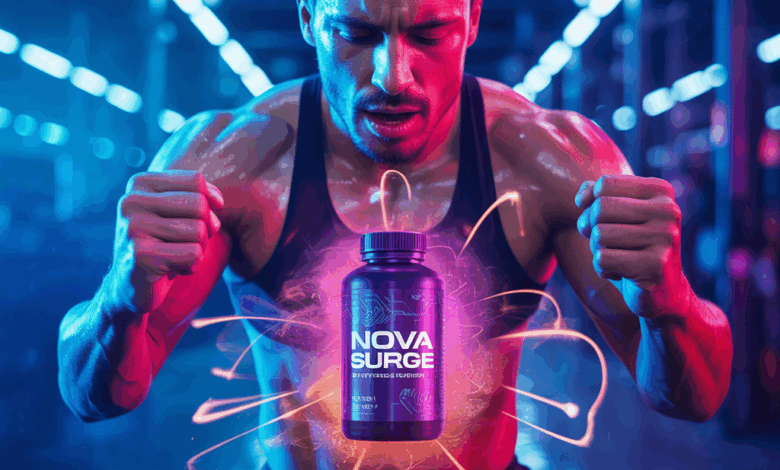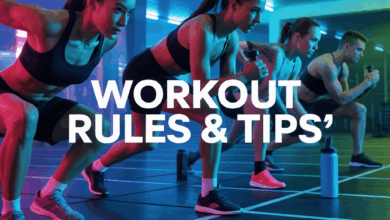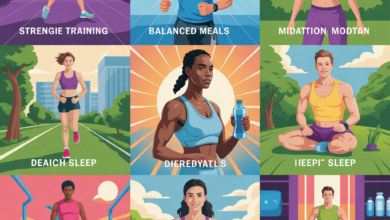Will Pre Workout Work If I Have ADHD? — What to Know Before You Mix Focus and Caffeine

Have you ever stood in the supplement aisle staring at neon tubs of pre-workout, wondering if that jolt of energy will actually help you focus — or just send your brain into a wired, jittery mess? If you have ADHD, that question isn’t hypothetical. You want better workouts and clearer focus, but you’re also cautious about stimulants, medication interactions, and unexpected side effects. So: will pre workout work if I have ADHD? Let’s unpack the science, real-world experiences, and practical strategies so you can make a smart, safe choice.
How pre-workout supplements interact with ADHD
Pre-workout supplements typically contain stimulants (like caffeine), nitric oxide boosters (citrulline), amino acids (beta-alanine, BCAAs), and sometimes nootropics (L-theanine, tyrosine). ADHD is a neurodevelopmental condition often treated with stimulant medications (methylphenidate, amphetamines) or non-stimulant drugs. The core issue is how these ingredients affect attention, arousal, heart rate, and medication metabolism.
Stimulant effects: beneficial or risky?
For some people with ADHD, caffeine can enhance alertness and help with workout motivation. For others, especially those on stimulant medication, added caffeine can increase anxiety, raise heart rate, and worsen sleep. The key is individual sensitivity and dosage. Start small—think half a serving or 50–100 mg caffeine—before trying a full scoop.
Nootropics and amino acids: subtle coaches for focus
Ingredients like L-theanine, tyrosine, and certain adaptogens may support mental clarity without the crash of high-dose caffeine. Beta-alanine and BCAAs can improve workout endurance and reduce fatigue. These can be useful alternatives or complements if strict stimulants are a concern.
Will pre workout work if i have adhd — practical scenarios
Short answer: sometimes. The outcome depends on your medication status, stimulant tolerance, goals, and the specific pre-workout formula. Here are three realistic examples to illustrate:
- Maya, medicated and cautious: On a prescribed amphetamine, she tried a full-strength pre-workout and felt jittery and unable to sleep. Switching to a non-stimulant pre-workout with citrulline and beta-alanine kept her performance gains without added anxiety.
- Alex, unmedicated and low-energy: Found 100 mg of caffeine plus L-theanine in a pre-workout dramatically improved his drive to hit HIIT sessions. He avoided evening workouts and kept hydration high.
- Jordan, sensitive to stimulants: Preferred caffeine-free pre-workouts with focus-supporting amino acids and timed his workouts after a structured routine and quality sleep — the consistency improved both focus and strength.
How to choose and use pre-workout safely with ADHD
Follow these practical steps to minimize risk and maximize benefit:
- Check medications: Consult your prescriber or pharmacist about interactions if you’re taking ADHD medication. Combining stimulants can raise blood pressure and anxiety risk.
- Start low and test: Begin with half a dose or a caffeine-free formula to gauge sensitivity.
- Read labels: Look for total caffeine per serving and avoid proprietary blends that hide dosages.
- Time it: Take pre-workout 30–60 minutes before exercise, and avoid late-afternoon doses that could disrupt sleep.
- Hydrate and eat: A light carbohydrate + protein snack before training can stabilize blood sugar and improve focus.
Recommended ingredient profile for ADHD-friendly pre-workouts
- Low to moderate caffeine (50–150 mg) or caffeine-free options
- L-theanine or tyrosine for cognitive support
- Citrulline for blood flow and pump
- Avoid excessive sugar and unknown proprietary blends
Workout variations that pair well with ADHD
People with ADHD often thrive on novelty, intensity, and clear goals. Try these formats:
- HIIT (High-Intensity Interval Training): Short bursts of intense work keep boredom away and provide dopamine-rich rewards.
- Circuit training: Combine strength and cardio in rotating stations to maintain focus and momentum.
- Short strength sessions: 30–40 minute focused lifts with progressive overload can yield big gains without mental burnout.
- Skill-based workouts: Martial arts, climbing, or dance add novelty and cognitive engagement.
Sample 30-minute ADHD-friendly session
- 5-minute dynamic warm-up
- 4 rounds: 40 seconds work / 20 seconds rest — kettlebell swings, push-ups, box step-ups, and rowing
- 3 sets of compound lifts (squats or deadlifts) — keep reps moderate and intensity controlled
- 5-minute cool-down and mobility
Lifestyle habits that amplify pre-workout benefits
Supplements are just one piece. Optimize these areas for consistent focus and performance:
- Sleep: Prioritize regular sleep; stimulant sensitivity increases when you’re sleep-deprived.
- Nutrition: Balanced meals with protein, healthy fats, and complex carbs stabilize energy. See our nutrition guides for meal strategies.
- Routine: Consistent workout times cue your brain for focus and habit formation.
- Stress management: Mindfulness, brisk walks, and breaks during the day help regulate attention.
- Program design: Follow structured plans from our workout routines to reduce decision fatigue and increase adherence.
Frequently Asked Questions
Not necessarily. For some people, small amounts of caffeine and nootropics improve focus and motivation. For others—especially those on stimulant medication or with anxiety—pre-workout can amplify jitteriness and disrupt sleep. Test conservatively and consult your healthcare provider.
Yes. Caffeine-free formulas with citrulline, beta-alanine, BCAAs, L-theanine, and tyrosine can enhance workout performance and cognitive clarity without stimulants. These are often a safer starting point for those sensitive to caffeine.
Safe limits vary by individual and medication status. Many people find 50–150 mg helpful; some tolerate more. If you take stimulant medication, speak with your prescriber. Monitor heart rate, anxiety, and sleep quality when adjusting dose.
Conclusion — Will pre workout work if i have adhd?
The honest answer: it depends. Pre-workout supplements can help some people with ADHD boost motivation, intensity, and focus — but they can also create anxiety, sleep disruption, or interact with medications for others. The smart approach is to consult your healthcare provider, choose formulas designed for sensitivity (or caffeine-free), start with low doses, and pair supplements with strong lifestyle habits. Want tailored workout ideas or a beginner-friendly plan that fits ADHD tendencies? Check our workout routines and wellness tips pages, and consider experimenting safely to find what works for you.
Ready to try a low-dose or stimulant-free pre-workout this week? Start with one small change—track how you feel, and adjust. Share your experience or questions in the comments below, or book a consult with your health provider to make a plan that fits your medication and goals.





